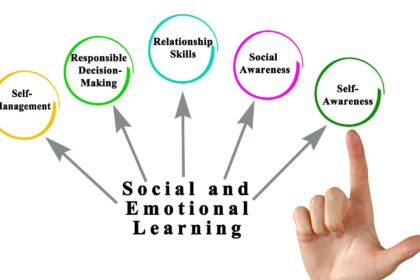How The Wonder Years Helped Shape Adolescents
Introduction
The Wonder Years is an American TV sitcom which aired from 1988 to 1993. The series focused on the development of character Kevin Arnold (played by Fred Savage). Kevin is the son of Jack Arnold (Dan Lauria) and Norma Arnold (Alley Mills). Kevin’s journey begins at age 12 in junior high. In the first season, several other characters are introduced who nearly all will be present throughout the remaining five seasons. Some of these characters include his older brother and sister, his best friend, and several other cohorts. Kevin’s parents are still married. His father (roughly in his late forties) holds a steady day job which affords their family the typical suburban lifestyle of the plot’s 1960s timeline. His mother (around the same age as his father), functions as the typical housewife for the time. Kevin’s brother is a couple of years older, acting a bit of a bully towards Kevin. His sister is several years older, mostly off at college, and hardly around.
Parenting Styles

It is arguable that Jack and Norma Arnold exhibit an authoritarian parenting style. This is due to their general appreciation for reciprocity and communication with their children, but never at the cost of true dominance. In other words: Kevin Arnold (and his siblings) may offer their own opinions, operate in a mostly autonomous and free way of living, and spend their time among their parents and as they wish in the household, as long as they their parents word remains supremely dominant. Jack (and surprisingly sometimes Norma) have no problem ensuring they issue stern words when necessary to maintain a tighter ship. This parenting attitude of maintaining the parent’s agenda above all is generally an effective way for maintaining compliance within a household (Laursen and Collins, 2009).
Positive Interactions and Support
Positive relationships between parent and child in any adolescent development are beneficial to the overall psychological development of the child (Laursen and Collins, 2009). Positive interactions such as communication and cohesion greatly enhance the relationship and the child’s development (2009). Kevin and Jack Arnold do not have a strong cohesion, with their closeness and emotional connectivity greatly lacking. Additionally, Jack Arnold is a man of little words, so their communication also naturally suffers. However, once in a while, when it truly matters, Jack will provide the support Kevin needs, and the support pillar is adequately satisfied to offer Kevin a balanced psychological state of mind. Jack supplies Kevin with enough positive experiences of his own (e.g. taking him to work) and new experiences together to build an ethically sound child. After all, positive role modeling is less about physical power and more about sharing experiences with a child (2009). And the moment-to-moment interactions can prove to make life-long, lasting impacts on an adolescent (Duncan et al., 2009).
Negative Interactions and Conflict
There are some negative relationship attributes which exist between Kevin Arnold and his father, Jack Arnold. These deficits appear present throughout the entirety of the show, from season 1 through season 6. Largely, the negative interactions are summarized by the general absence of Jack Arnold in Kevin’s life. There are several instances where Kevin reaches out, attempting to bond with his father, only to be rejected or ignored. Sometimes, it is a subtle rejection. For example, Kevin tried to relate to his father, explaining he had made a similar advance with Winnie Cooper that his father made with his mother long ago and his father just shrugs. In another season, Kevin and Jack begin to build a treehouse together which they quickly abandoned after only one episode. These interactions do create what could be described as an insecurity in Kevin, which is almost always present throughout all episodes. This makes sense, as negative relationships of this type are often detrimental throughout an adolescent’s entire development (Laursen and Collins, 2009).
Adolescent Outcomes
In the final episode of The Wonder Years, Kevin Arnold explains his adult-life outcome. He ends up a married man, with a wife whom he loves, and some wonderful children. The narration describes a family which parallels his own childhood household. In other words, Kevin has created a family in the same way as his father and has adopted his parent’s lifestyle as his own. He ends up a provider, just like his father, and possesses the grace of his mother. It makes sense that Kevin would adopt these traits from his parents, as parent-child relationships play a great role in the shaping of an adolescent during their development years (Laursen and Collins, 2009). It is also well-supported that cultural variations, such as middle-class, suburban life in America during the 1960s, can play a large part in the way this relationship develops (2009). This authoritarian parenting style has seen a decline in modern times, but the influence of a parent on a child remains equally strong (Tilton-Weaver, 2014).
Conclusion

Ultimately, The Wonder Years is an excellent showcase of an average American family in the 1960s and 1970s. Kevin’s relationship with his father plays a significant role in his cognitive development throughout the seasons. This relationship also influenced Kevin’s decision making throughout the story. His parents were able to provide Kevin with enough positive influence and support to craft a fine, balanced young man. It is reasonable to assume that the discipline, support, and other positive aspects of his upbringing dramatically contributed to Kevin’s positive decision making throughout his adolescent development (and later in life).
References
Duncan, L. G., Coatsworth, J. D., & Greenberg, M. T. (2009). A model of mindful parenting: implications for parent-child relationships and prevention research. Clinical Child and Family Psychology Review, 12(3), 255–270. https://doi.org/10.1007/s10567-009-0046-3
Laursen, B. and Collins, W.A. (2009). Parent—Child Relationships During Adolescence. In Handbook of Adolescent Psychology (eds R.M. Lerner and L. Steinberg). https://doi-org.ezproxy.liberty.edu/10.1002/9780470479193.adlpsy002002
Tilton-Weaver, L. (2014). Have Authoritarian Parenting Practices and Roles Changed in the Last 50 Years? Journal of Marriage and Family, 76(4), 744–761. https://doi.org/10.1111/jomf.12124




